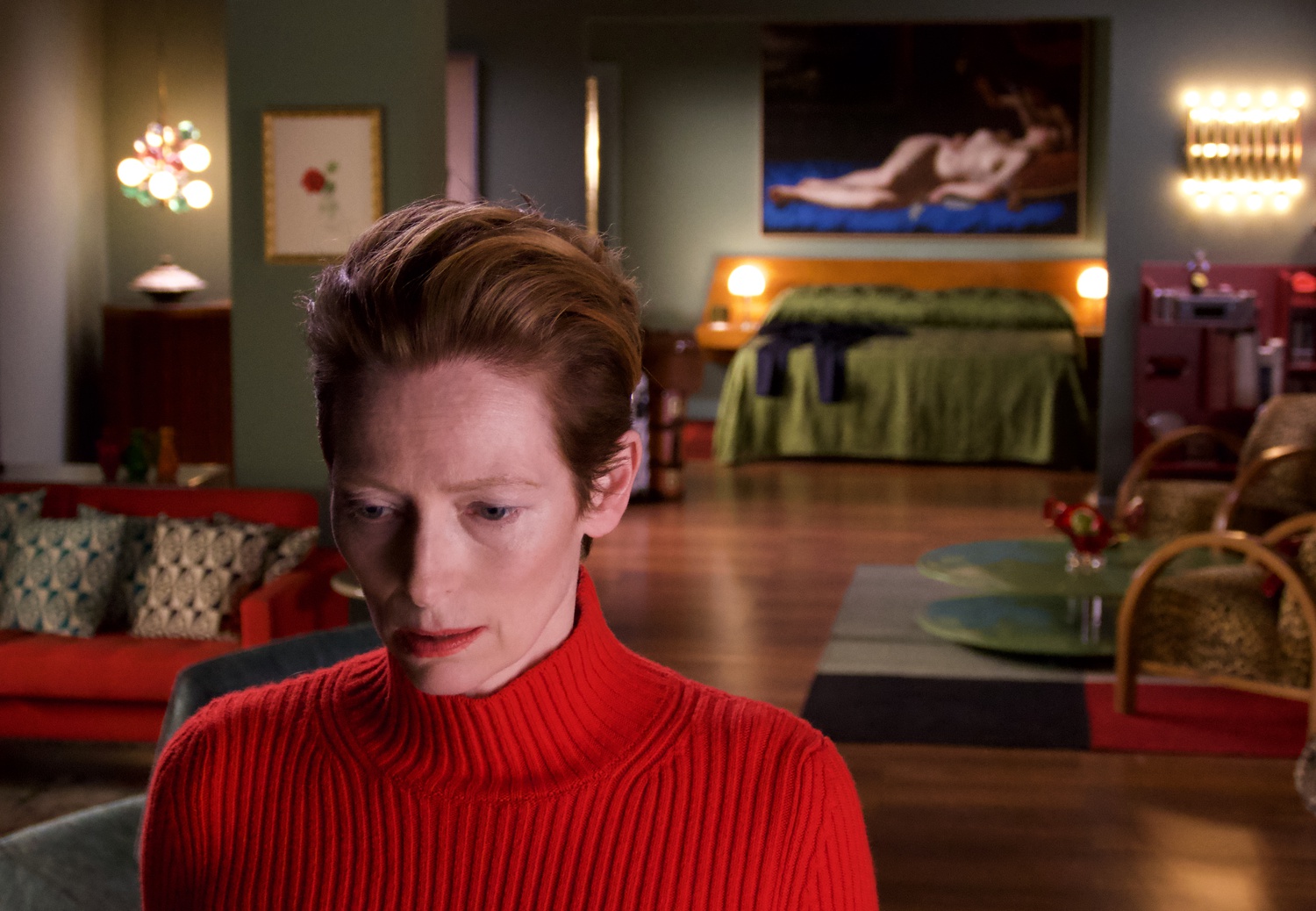
News
Summers Will Not Finish Semester of Teaching as Harvard Investigates Epstein Ties

News
Harvard College Students Report Favoring Divestment from Israel in HUA Survey

News
‘He Should Resign’: Harvard Undergrads Take Hard Line Against Summers Over Epstein Scandal

News
Harvard To Launch New Investigation Into Epstein’s Ties to Summers, Other University Affiliates

News
Harvard Students To Vote on Divestment From Israel in Inaugural HUA Election Survey
From NYFF: ‘The Human Voice’ is Bold and Self-Aware
Dir. Pedro Almodóvar — 4 Stars

It’s loud. It’s haunting. And it’s unmistakably Almodóvar. Academy Award winning Spanish writer-director Pedro Almodóvar, known for “Talk to Her” and “Pain and Glory”, leaves his trademark stylistic stamp on his English-language debut “The Human Voice.” Almodóvar's latest is a timely story about grief and the importance of human connection, which also comments on the role that film can play in facilitating such connection.
“The Human Voice” is a short film about an unnamed woman (Tilda Swinton in a powerful, emotionally resonant role) who struggles in the aftermath of a four year relationship that ends unceremoniously. It opens with the woman taking a trip to a hardware store, where she purchases an axe from a very concerned-looking salesman and uses it to slash at her partner's suit laying dormant on a bed. Some time passes before her former partner calls and she talks to him with audio only; we only ever hear her side of the conversation. Soon, the woman walks out of her apartment, and it’s revealed that her apartment exists within a film stage.
It seems to have been a priority for Almodóvar to work with some of his frequent collaborators in "The Human Voice". Here, he pairs again with cinematographer José Luis Alcaine, from “Women on the Verge of a Nervous Breakdown” in 1988 to “Pain and Glory” in 2019, and production designer Antxon Gómez, who worked on “All About My Mother” and “Pain and Glory.” Even the score, by Alberto Iglesias — who has composed the scores in all of Almodóvar’s films — revisits musical motifs from the director's filmography, including themes from “Talk to Her.”
But Almodóvar doesn't reunite with these craftsmen for the pure sake of nostalgia; “The Human Voice” is special because it exhibits an uncanny self-awareness. Almodóvar’s latest looks past the acclaimed director’s filmography and highlights his key themes of loneliness, regret, and the importance of human connection, all while shining a light on the parallels between filmic constructions and everyday reality.
On a visual level, Alcaine injects an absurdist quality into “The Human Voice.” His camera work is particularly striking in the opening scenes, for instance with a dolly zoom as the woman looks, distraught and disoriented, over the terrace, or with a creeping tracking shot of her legs as she approaches the bed with an axe. Alcaine’s hyper-saturated palette of scintillating reds and pronounced greens represents the heightened reality of a filmic presentation. Evidently, this was Almodóvar’s intention. Alcaine sometimes shoots from overhead to reveal the apartment set in its entirety, illuminating all the dividing walls.
These shots work in large part thanks to the ingenious production design from Antxon Gómez. He dresses up the house interior like a typical Almodóvar film, complete with the same palette and even identical decorations — some rooms might as well have been pulled straight out of “Pain and Glory."
There is no doubt that this is an artificial, constructed reality. But it’s also one where Swinton’s character is walled in, not only in reality as an actor bound to the set, but as a character stuck in the shell of a relationship that no longer exists. It’s a puzzling development that could leave multiple interpretations; however, it’s most likely that Almodóvar is pointing to how film, as a constructed reality itself, is used to communicate and connect with the audience. When that connection breaks down, all that’s left is the theatrics — a flamboyant, and as Swinton’s character proves, a highly flammable, set.
Almodóvar’s film was set to begin shooting in April 2020, but due to COVID-19, production instead began in July. As most of the world remains in some form of lockdown, "The Human Voice" finds itself screening virtually at the New York Film Festival. It’s prescient that a film about the importance of human connection should be interrupted by a pandemic that strained the very definition of those connections.
“The Human Voice” may well be one of the premier highlights of NYFF, and serves as a reminder that Almodóvar remains a filmmaking force — even with a career now entering its fifth decade.
—Staff writer Lanz Aaron G. Tan can be reached at lanzaaron.tan@thecrimson.com and on twitter @LanzAaronGTan1.
Want to keep up with breaking news? Subscribe to our email newsletter.
